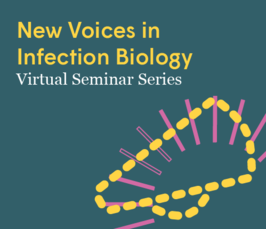The action mechanisms of male-killing toxin produced by Drosophila symbionts
New Voices in Infection Biology
- Datum: 11.05.2022
- Uhrzeit: 16:00
- Vortragende(r): Toshiyuki Harumoto
- Hakubi Center for Advanced Research, Kyoto University, Japan
- Ort: Zoom video conference
- Gastgeber: Igor Iatsenko
- Kontakt: vseminars@mpiib-berlin.mpg.de

If you are interested in joining the seminar, please contact: vseminars@mpiib-berlin.mpg.de
Once registered, you will receive a zoom conference link 30 mins before the talk starts - please sign in using your full name.
Talk abstract:
Insect symbioses, in which microorganisms are living inside insect hosts, are extreme examples of host-microbe interaction. Several symbiotic bacteria manipulate host reproduction in a selfish manner to spread their infection into a population. Spiroplasma is a helical and motile, Gram-positive bacterium, which resides in diverse Drosophila species. The most remarkable feature of this bacterial symbiont is male killing, whereby male offspring from infected females is selectively killed during embryogenesis. Recently, we have identified a male-killing toxin designated Spaid in the Spiroplasma genome, whose artificial expression reproduces the male-specific death/cellular defects observed in infected embryos, like abnormal apoptosis followed by the accumulation of DNA damage on the male X chromosome. In this presentation, we will discuss the action mechanism of this bacterial toxin, especially the role of its eukaryotic-like protein domain. If time permits, we will also present our ongoing project regarding a novel male-killing toxin, discovered in a symbiotic virus in wild-caught Drosophila.